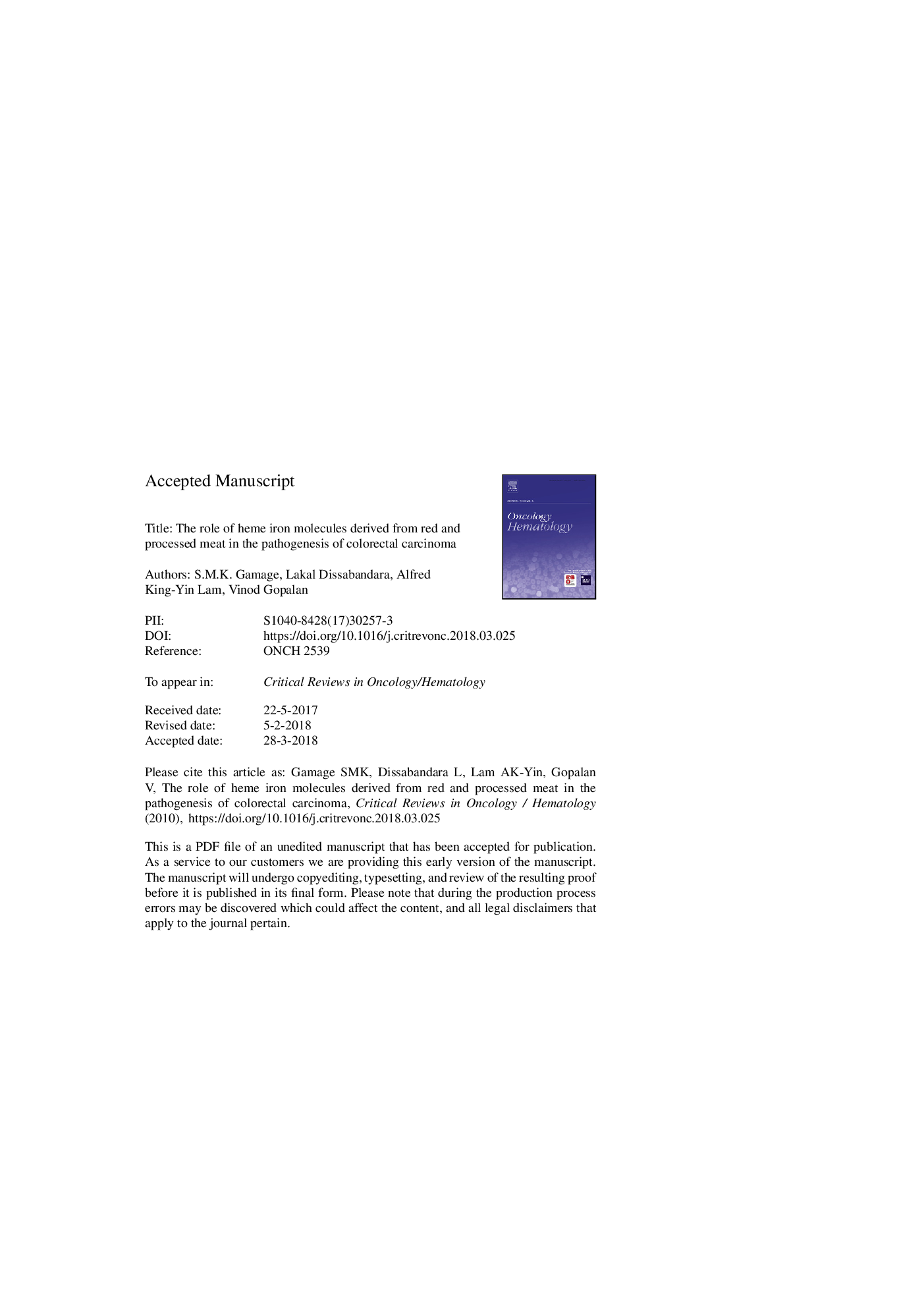| Article ID | Journal | Published Year | Pages | File Type |
|---|---|---|---|---|
| 8733620 | Critical Reviews in Oncology/Hematology | 2018 | 38 Pages |
Abstract
Emerging evidence that heme iron in red meat is a risk factor for colorectal carcinogenesis is a topic that has received recent scrutiny. This review aims to summarise the mechanism of colorectal carcinogenesis by heme contained in red and processed meat. Heme iron can induce cytotoxicity by 'cytotoxic heme factor' and promote surface epithelial cell apoptosis and compensatory epithelial hyperplasia. Heme, induces peroxidation of lipids, leading to free radical formation and generation of DNA adducts in colorectal epithelial cells. In addition, heme catalyses the formation of N-nitroso-compounds, which in turn results in the initiation of colorectal carcinogenesis. Emerging data suggest that intestinal dysbiosis can promote carcinogenic properties of heme. Heme induces multiple genetic alterations by regulating WNT signalling pathway and causing mutations in major colon cancer genes such as APC, TP53 and KRAS. However, a balanced diet containing green vegetables, olive oil and calcium may reduce the carcinogenic effects of heme.
Related Topics
Health Sciences
Medicine and Dentistry
Hematology
Authors
S.M.K. Gamage, Lakal Dissabandara, Alfred King-Yin Lam, Vinod Gopalan,
